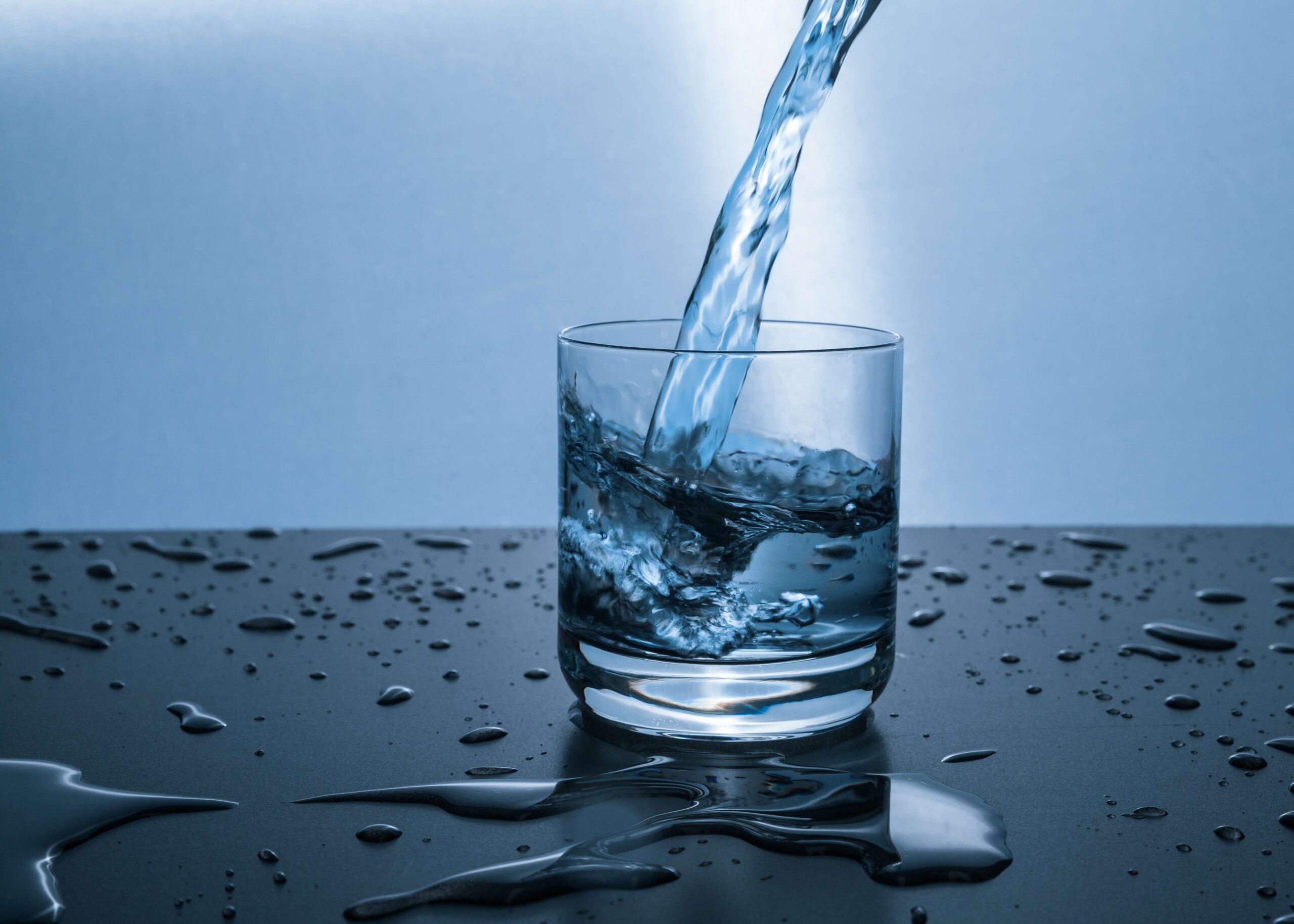Is Your Drinking Water Safe? The Comprehensive Water Filter Guide
[disclosure]
Introduction
Access to clean and safe drinking water is crucial for maintaining good health. With various water filter options available in the market, it’s essential to make an informed decision. This water filter guide will discuss different types of water filters, the contaminants they remove, and how to choose the right one for your needs.
Types of Water Filters
-
Activated Carbon Filters
Activated carbon filters use a process called adsorption to remove contaminants from water. They are effective in removing chlorine, sediment, and volatile organic compounds (VOCs).
-
Reverse Osmosis (RO) Systems
RO systems use a semi-permeable membrane to remove dissolved solids, including salts, heavy metals, and fluoride. They produce high-quality water but require considerable water pressure to operate.
-
Ultraviolet (UV) Disinfection
UV disinfection uses ultraviolet light to kill bacteria, viruses, and other microorganisms. It is effective in eliminating waterborne pathogens but does not remove chemicals or impurities.
-
Ion Exchange (IE) Systems
IE systems exchange ions in water to remove minerals such as calcium and magnesium, which cause hard water. They effectively soften water and prevent scale buildup in pipes and appliances.
-
Mechanical Filters
Mechanical filters remove sediment, dirt, and other particulates from water using a physical barrier. They are often used as a pre-filter in combination with other types of filters.
-
Distillation Systems
Distillation systems heat water to create steam, which is then condensed and collected. This process removes contaminants with a higher boiling point than water, including heavy metals, nitrates, and some bacteria.
-
Ceramic Filters
Ceramic filters use small pores in the ceramic material to filter out contaminants such as bacteria, cysts, and sediment. They can be used alone or in combination with other filter types for improved performance.
-
Granular Activated Carbon (GAC) Filters
GAC filters use loose granules of activated carbon to remove contaminants. They are less effective than solid block activated carbon filters but can still reduce chlorine, bad taste, and odors.
-
Water Softeners
Water softeners use ion exchange technology to remove hardness-causing minerals such as calcium and magnesium. While not strictly a water filter, they can improve water quality and protect appliances and pipes from scale buildup.
-
Alkaline or Water Ionizers
Alkaline water ionizers use a process called electrolysis to separate water into alkaline and acidic components. Alkaline water is said to have health benefits, but scientific evidence is limited.
Contaminants and Their Health Effects
Water contaminants can be grouped into various categories based on their origin and potential health effects. Understanding these contaminants can help you choose the right water filter for your needs.
-
Microorganisms
Microorganisms like bacteria, viruses, and protozoa can cause waterborne diseases. Common examples include E. coli, giardia, and cryptosporidium. UV disinfection and ceramic filters are effective in removing these contaminants.
-
Heavy Metals
Heavy metals such as lead, mercury, and arsenic can be harmful even at low concentrations. They can cause neurological, kidney, and reproductive issues, among other health problems. Reverse osmosis and activated carbon filters can effectively remove heavy metals.
-
Chemicals
Chemicals like pesticides, herbicides, and VOCs can contaminate water sources and pose health risks. Activated carbon filters are suitable for removing most chemicals, while distillation can eliminate specific chemicals with higher boiling points.
-
Radioactive Elements
Radon, uranium, and other radioactive elements can be found in some water supplies. Ingesting these elements can increase the risk of cancer. Reverse osmosis and activated carbon filters can remove radioactive elements.
-
Nitrates and Nitrites
High levels of nitrates and nitrites in water can pose health risks, particularly for infants and pregnant women. Reverse osmosis, distillation, and ion exchange systems can effectively remove nitrates and nitrites.
How to Choose the Right Water Filter
When selecting a water filter, consider the following factors:
- Water quality: Analyze your water to identify contaminants and determine the appropriate filter type.
- Budget: Determine your budget for the filter system and ongoing maintenance costs.
- Capacity: Choose a filter that can handle your household’s daily water consumption.
- Installation: Consider the space available for installation and ease of installation.
- Maintenance: Ensure the filter is easy to maintain and has a reliable customer support system.
Top 10 Water Filters for Your Home
Installation and Maintenance
Installation
Most water filters come with detailed installation instructions. Some filters, like faucet mounts and pitchers, require minimal setup and can be installed by the user. However, more complex systems, such as reverse osmosis and whole-house filters, may require professional installation.
Maintenance
Regular maintenance is crucial for ensuring the effectiveness and longevity of your water filter. The following are some general maintenance tips:
- Replace filter cartridges: Change filter cartridges according to the manufacturer’s recommendations to maintain optimal performance.
- Clean and sanitize: Periodically clean and sanitize your water filter system to prevent bacterial growth.
- Monitor water quality: Regularly test your water to ensure the filter is effectively removing contaminants.
- Inspect and repair: Regularly inspect your water filter for leaks or damage and repair any issues promptly.
The Environmental Impact of Water Filters
Water filters can have both positive and negative environmental impacts. On one hand, they can reduce the consumption of single-use plastic bottles and lower the carbon emissions associated with transporting bottled water. On the other hand, some water filter systems, like reverse osmosis, produce wastewater, and filter cartridges contribute to landfill waste. To minimize the environmental impact of your water filter, consider the following:
- Choose a water-efficient filter: Opt for a filter with a low water waste ratio, such as a carbon block or ceramic filter.
- Recycle filter cartridges: Look for filter cartridges that can be recycled or have recycling programs in place.
- Maintain your filter: Regular maintenance will ensure your filter operates efficiently and lasts longer, reducing waste.
Alternatives to Water Filters
If a water filter is not suitable for your needs or budget, there are alternative options to consider for improving your water quality:
- Boiling water: Boiling water for at least one minute can kill most bacteria, viruses, and parasites, but it does not remove chemicals or heavy metals.
- Bottled water: While bottled water can provide clean drinking water, it generates plastic waste and has a higher carbon footprint.
- Water delivery services: These services can deliver filtered water in reusable containers, reducing plastic waste and providing a convenient solution for clean water.
- Public water filling stations: Some communities offer public water filling stations, where you can fill reusable bottles with filtered water.
FAQs
Q: How often should I change my water filter?
A: The frequency of changing your water filter depends on the type and manufacturer’s recommendations. Generally, it ranges from every 2-6 months for most filters.
Q: Can a water filter remove lead from tap water?
A: Yes, certain types of water filters, such as reverse osmosis systems and activated carbon filters specifically designed for lead removal, can effectively remove lead from tap water.
Q: Is filtered water better than bottled water?
A: Filtered water can be of higher quality and more eco-friendly than bottled water, as it reduces plastic waste and transportation emissions. Additionally, using a water filter can save you money in the long run compared to purchasing bottled water.
Q: Do water filters remove essential minerals?
A: Some water filters, like reverse osmosis systems, may remove some essential minerals. However, the mineral loss is generally insignificant, and a balanced diet should provide adequate levels of essential minerals.
Helpful Resources
- EPA – Drinking Water Contaminants: A comprehensive list of drinking water contaminants regulated by the EPA, including information on their potential health effects.
- NSF International: Provides information on NSF/ANSI 53 certified water filters, which are tested and verified to reduce specific health-related contaminants in drinking water.
- Water Quality Association: A resource for information on water treatment technologies and industry news. Offers a searchable database of certified water professionals and products.
- Drinking Water: The Centers for Disease Control and Prevention’s (CDC) resource on drinking water safety, providing information on contaminants, waterborne diseases, and water treatment methods.
- EWG’s Tap Water Database: The Environmental Working Group’s (EWG) database allows you to search for your local water supply and view detected contaminants, helping you choose the right water filter for your needs.
- Water Research Foundation: A non-profit organization dedicated to advancing the science of water through research, collaboration, and education. Offers a variety of resources on water quality and treatment technologies.
By considering the types of water filters, the contaminants they remove, and the factors influencing the right choice for your home, you can make an informed decision to ensure access to clean, safe drinking water. With this comprehensive guide, you have all the information you need to select and maintain the ideal water filter for your needs.
Don’t hesitate to share your thoughts and experiences with us! Leave a comment below with your feedback or suggestions, and let’s start a conversation about the best water filters for your home.



















